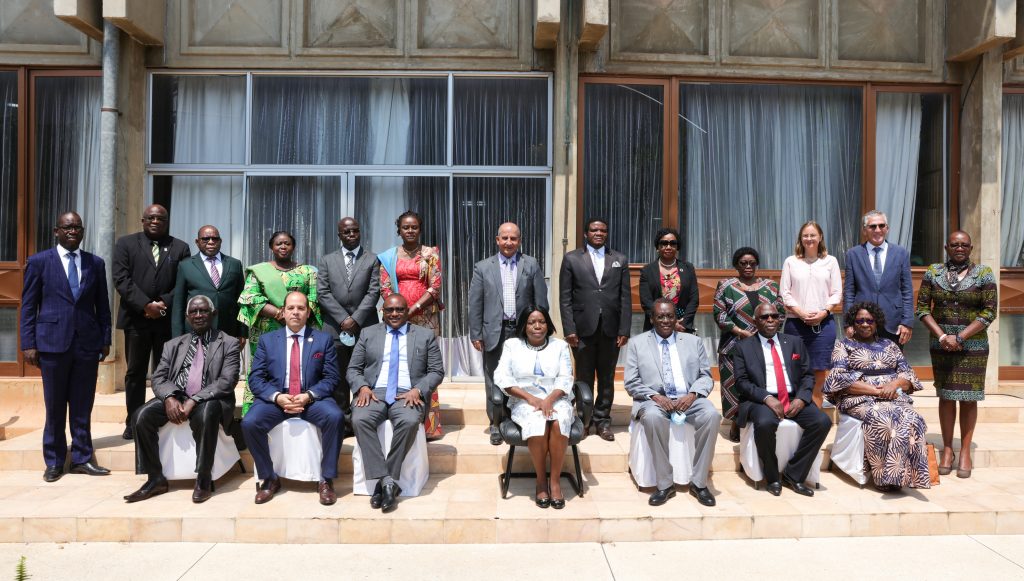
The Government of Zambia has launched the Country Structural Vulnerability Assessment and Resilience Process (CSVRA). The strategy is expected to enhance national resilience and responsiveness to various structural vulnerability factors that can impact on Zambia’s stability, security, and development
Supported by the African Union Commission (AUC) and COMESA Secretariat, the CSVRA is designed to facilitate the identification of a country’s structural vulnerability to conflict at an early stage. Zambia volunteered to undergo the CSVRA process through a Cabinet Memo submitted to both AU and COMESA in October 2020.
It focuses on identifying drivers of violent conflict in diverse areas such as socio-economic development, good governance, rule of law, democracy and human rights and in the security sector. This is in addition to environment and climate change, gender and youth, post conflict peace-building and transitional justice, and reconciliation.
Zambia’s Acting President Madam Mutale Nalumango presided over the official launch in Lusaka on 2nd November 2021.
“Let this process take Zambia to higher heights in the quest to making the country a beacon of peace and unity, noting that the new dawn government is a continuation of the benefits of democratic processes arising from peaceful transition of power, a timely reminder to Africa and world that Zambia is making strides that are part of the good governance agenda…” noted Mrs Nalumango who is the Vice President of Zambia.
She described the CSVRA as one of the ways of creating stability as a catalyst for sustainable development, anchored on local participation especially in areas that are more prone to disasters such as floods and droughts in the country.
COMESA Secretary General Chileshe Kapwepwe described the launch as historic because Zambia is the first country in the COMESA Region to volunteer to undertake this process and only third in Africa after Ghana and Cote dÍvoire.
“…Zambia has continued to show leadership in adopting key instruments on governance peace and stability…for example, Zambia was the second country in COMESA to ratify the African Charter on Democracy, Elections and Governance and among the top ten in Africa to do so,” Ms Kapwepwe point out.
She was represented by COMESA Assistant Secretary General for Programmes Dr Kipyego Cheluget.
African Union Commission (AUC) Senior Political Officer Ahmed Mokhtar described the CSVRA as a unique and home grown Pan African process that seeks to identify and acknowledge structural vulnerabilities, build upon resilience factors and invest in mitigation measures to prevent, manage and resolve conflicts.
Mr Mokhtar added that the role of the AUC and COMESA is to provide technical support which can be useful in preventing, managing and resolving conflicts.
Meanwhile, COMESA Secretariat and the AUC conducted a half-day consultative workshop, Thursday, 28 October 2021 with Permanent Secretaries and senior government officials in Zambia. The session received presentations on the Ghana and Ivory Coast experiences as case studies. The two countries have already launched their national strategies to address and mitigate the structural vulnerabilities identified.
Following the CSVRA launch, teams comprising of Zambian stakeholders supported by AUC and COMESA will proceed to hold wider consultations with stakeholders in the provinces across the country. Various diplomatic corps accredited to Zambia and development partners attended.

